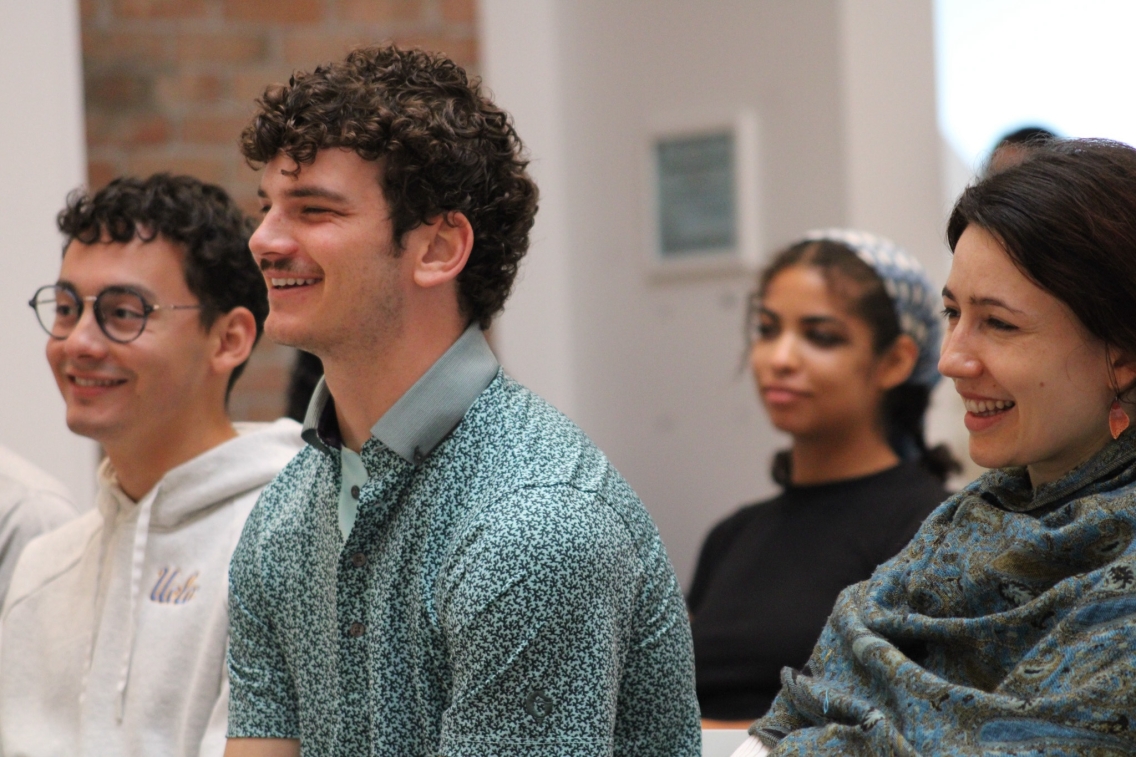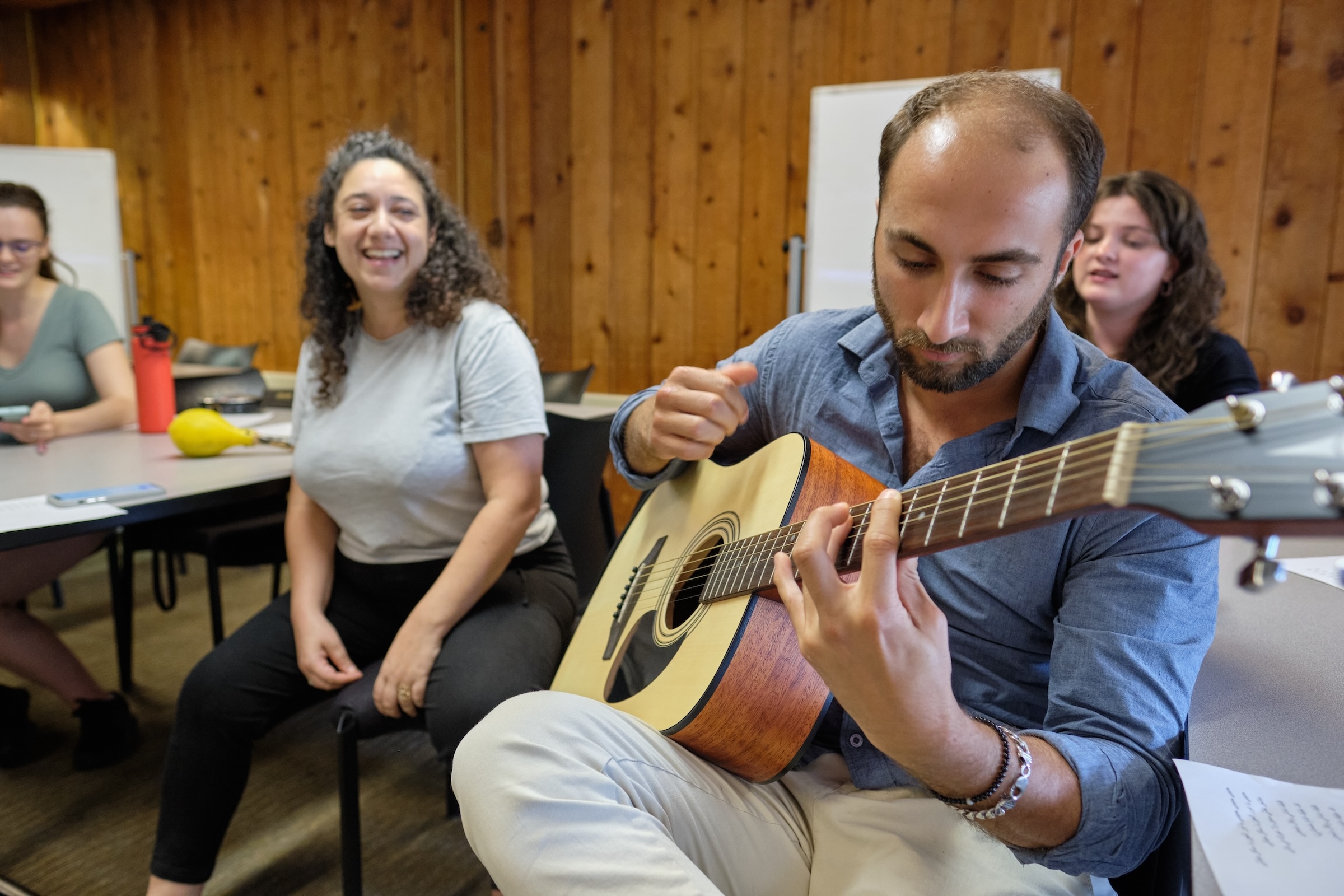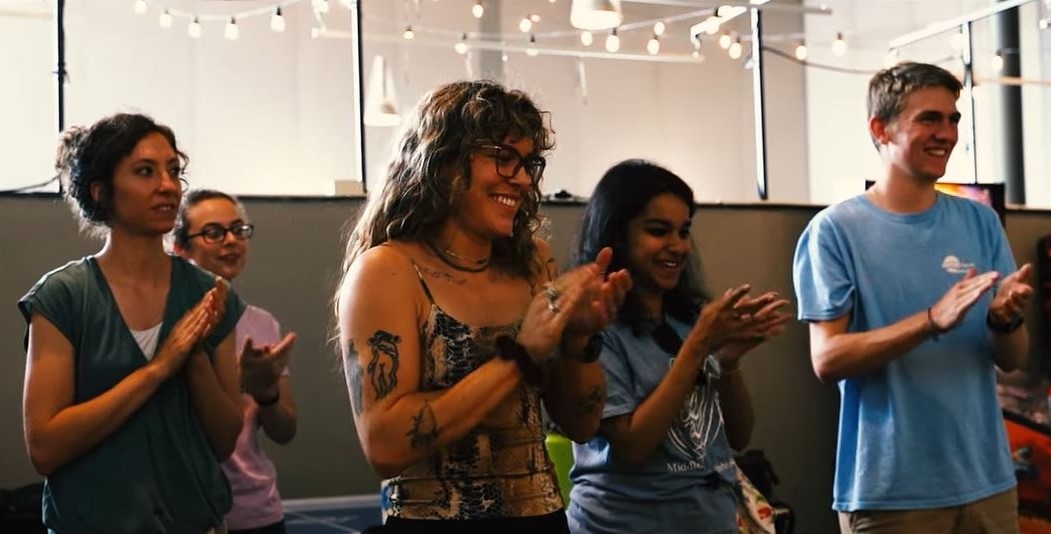
Arabic
Spend a summer at the Arabic School and you’ll experience the single most effective method for rapid language acquisition: a total Arabic language immersion environment with the Language Pledge®—a promise to read, write, listen, and speak only in your language of study.
Arabic Program Options
The Arabic School is located on the Bennington campus, along with Italian and Portuguese. Application and scholarship/financial aid processes are identical to those for the Middlebury campus. Programs are open to undergraduates, recent graduates, graduate students at other institutions, and professionals of all ages.
Apply to a program based on your language proficiency. High school graduates to 80+ years old are eligible.
- 8-Week Immersion Program for beginner to advanced students who want to improve language proficiency as rapidly as possible. Please see summer Dates and Fees.
- Graduate programs for students seeking a degree or graduate-level courses. Please see graduate Dates and Fees.
Live in Language
You’ll master not only vocabulary and syntax, but how to use the Arabic language to engage effectively with Arab culture. The focus is on Modern Standard Arabic during classroom hours, with optional Arabic language classes in colloquial dialects such as Moroccan, Egyptian, and Syrian. For students in the Master’s in Arabic, our programs provide rigorous graduate instruction in key content areas.
Outside the classroom, you’ll choose from a wide array of in-language cocurricular activities—including calligraphy, cooking, cinema, music, and the Qur’an—each designed to help you build new vocabulary while developing cultural fluency. In addition, the program offers daily review classes, one-on-one tutoring sessions, weekly guest speakers’ lecture series, and pronunciation workshops.
With connections to prominent universities across the globe, the Arabic School draws from among the leading scholars of the Middle East, Africa, Europe, the United States, and Canada. Our faculty will support you at every step, helping you perfect your Arabic throughout your program.
Learn Arabic at Middlebury
Middlebury’s 8-week Arabic immersion program is one of the oldest and most respected Arabic-learning programs in the United States. You live in Arabic-speaking dormitories and take your classes in Arabic.
By learning the language, you will gain a better understanding of the culture and the people who speak it. You will also be able to communicate with people from different countries and backgrounds.
Our language programs are designed to help you develop skills that will be beneficial in any academic, professional, or personal setting: listening, speaking, reading, writing, grammar, and vocabulary development.
Middlebury Language Schools is open to students of all levels, from those with no prior knowledge of Arabic to those who are already proficient in the language and want a graduate degree in Arabic. Learn more about the different Arabic language levels we offer.
Funding
Thanks to the support of generous donors (including Language Schools alumni) and Middlebury’s commitment to provide an opportunity for as many students as possible, we are pleased to offer funding opportunities.
You’ll find several options available for both the immersion and graduate programs, as well as funding for specific languages of study. Students can also apply to outside funding opportunities including the Boren Fellowship, Foreign Language and Area Studies (FLAS) Fellowship, and VA Benefits.
Frequently Asked Questions
Which Arabic dialect is taught at Middlebury?
In class, Middlebury focuses on Modern Standard Arabic. However, in the lower levels (Level 1 – Level 2) the Egyptian and Levantine Dialects are incorporated into the curriculum. As for the higher levels, we offer additional dialect sessions in the following: Egyptian, Levantine, Yemeni/Saudi, Moroccan. Middlebury faculty are from all over the world.
Why should I learn Arabic?
Arabic is the fifth most spoken language in the world. Understanding Arabic and its culture will put you in a unique position to apply for public and private employment opportunities requiring contact with the Arab world. Additionally, Arabic is an official language of the United Nations, the Arab League, and the African Union.
Speaking and understanding Arabic will give you the skills to communicate with people from middle-eastern countries and prepare you for a graduate program if that’s a possibility you are considering. Middlebury Language Schools also offers an MA in Arabic.
What are the benefits of learning Arabic?
Although it sounds very different to English and Romance languages, Arabic is not difficult to learn. How long it takes to learn Arabic will depend on your individual skills but also the kind of language-learning program you enroll in.
Using an app to learn Arabic can help you with the basics but you probably won’t become a fluent speaker. Our summer immersion program is designed to improve your proficiency level in just 8 weeks. By taking the language pledge, you will only speak, read and write in Arabic throughout the duration of the program.
Will I learn the Arabic alphabet?
Yes, by enrolling in Middlebury’s Arabic immersion program you will learn to speak, read and write in Arabic. You also have the option to attend co-curricular activities such as Arabic calligraphy.
What are the dates and fees for the programs? How can I apply for funding?
Please see the dates and fees for the 8-week Arabic Immersion Program and the dates and fees for the MA in Arabic.
In order to apply for funding opportunities through Middlebury, you must first submit a complete Middlebury Language Schools application. After you have submitted your application, you will receive a confirmation email with the subject “Middlebury Application & Funding Links” that contains the links to fellowships and scholarships and financial aid. Please see funding opportunities for the immersion program and graduate program.
Other outside funding options include, the FLAS award (US Department of Education) and funding from your home institution and/or employer.





























